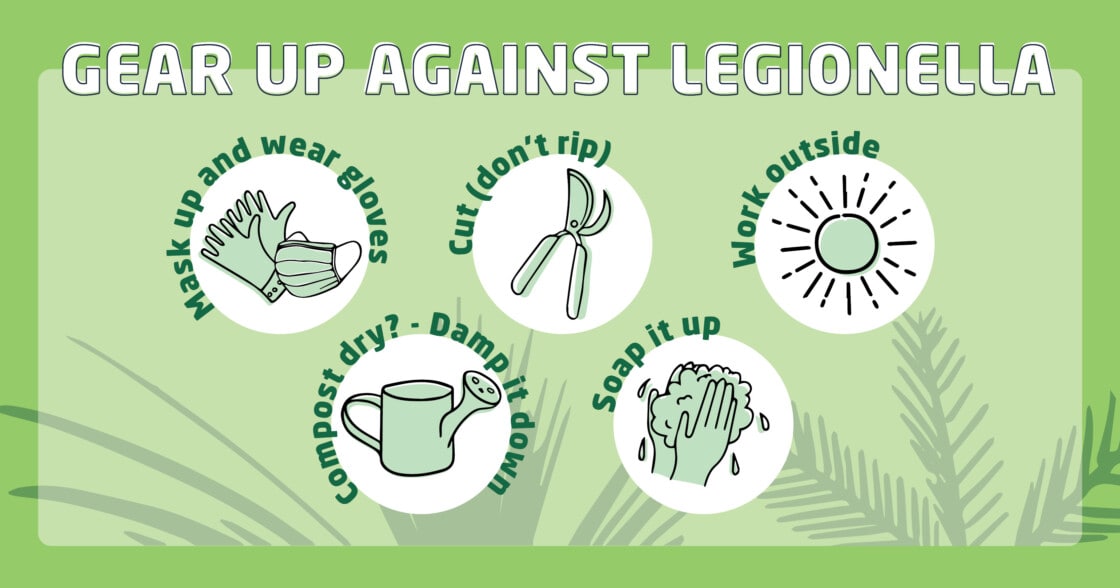Friday 24 September 2021Media release2 minutes to read

The five golden rules to protect yourself against Legionella
As the Spring weather rolls in to Canterbury with the sun shining today and more good weather forecast for tomorrow, Te Mana Ora – Community and Public Health is urging gardeners to ‘gear up’ to protect themselves against Legionnaires’ disease.
Canterbury Medical Officer of Health, Dr Ramon Pink, says Legionnaires’ disease, caused by legionella bacteria, can start with flu-like symptoms.
“You can mistake it for the flu. Most people get high fever, muscle aches, fatigue and headache, and some get diarrhoea, vomiting and chest pains.
“In severe cases, people develop dry cough that could lead to pneumonia that requires hospitalisation,” says Dr Pink.
This year’s campaign highlights the importance of using the right gear when gardening, particularly when handling compost and potting mix.
Dr Pink says there are five easy ways to avoid Legionnaire’s disease including using the right gear for the job:
- Mask up and wear gloves – Use well-fitting disposable face mask and wear gloves when handling compost and potting mix.
- Cut (don’t rip) – Open bags of compost or potting mix carefully and away from your face using scissors.
- Work outside – Work with compost or potting mix in a well-ventilated outdoor area.
- Compost dry? Damp it down – Dampen down compost or potting mix to reduce dust.
- Soap it up – Wash your hands thoroughly with soap and water after the work is done.
Cases of Legionnaires’ typically increase during the months of September, October and November during gardening season.
In 2019, there were 49 recorded cases of Legionnaires’ disease across Canterbury, West Coast and South Canterbury and last year, there were 52 recorded cases.
“If you are experiencing the symptoms, contact your general practice team immediately, and let them know you have been handling potting mix or compost recently,” Dr Pink says.
The illness may be mild but can sometimes be fatal. Anyone can catch Legionnaires' but people over 50 years of age, those with a long-term illness (particularly lung disease), people with low immunity, and smokers are most at risk.
More information on Legionnaires’ disease can be found on our dedicated website page here: https://www.cdhb.health.nz/gear-up-against-legionella.
ENDS
Tags LegionellaLegionnaires' diseasePublic health
Back to Health News

